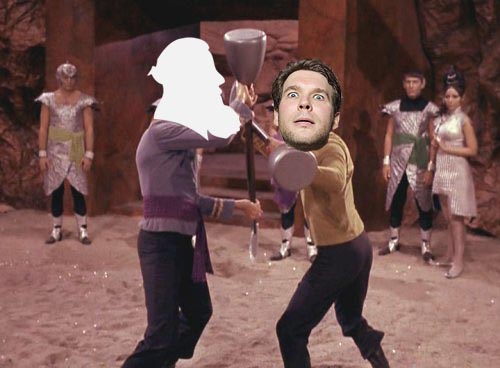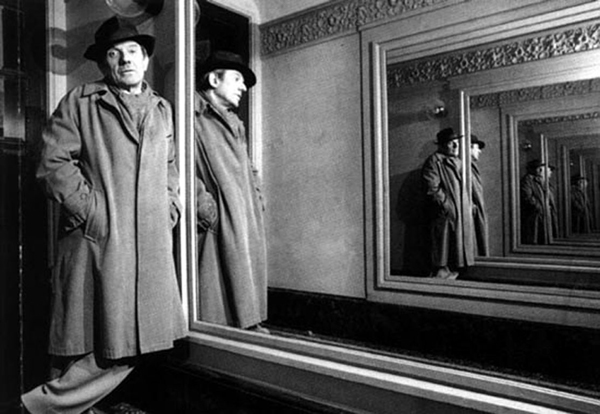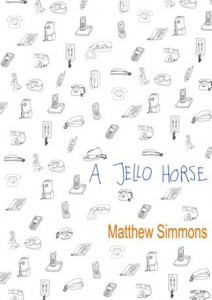Theory of Prose & better writing (ctd): The New Sincerity, Tao Lin, & “differential perceptions”
In the first post in this series, I outlined Viktor Shklovsky’s fundamental concepts of device (priem) and defamiliarization (ostranenie) as presented in the first chapter of Theory of Prose, “Art as Device.” This time around, I’d like to look at the start of Chapter 2 and try applying it to contemporary writing (specifically to the New Sincerity). As before, I’m proposing that one can actually use the principles of Russian Formalism to become a better writer and a better critic.
Viktor Shklovsky wants to make you a better writer, part 1: device & defamiliarization
When I was finishing up my Master’s degree at ISU, I worried that I still didn’t know much about writing—like, how to actually do it. My mentor Curtis White told me, “Just read Viktor Shklovsky; it’s all in there.” So I moved to Thailand and spent the next two years poring over Theory of Prose. When I returned to the US in the summer of 2005, I sat down and started really writing.
I’ve already put up one post about what, specifically I learned from Theory of Prose, but it occurs to me now that I can be even more specific. So this will be the first in a series of posts in which I try to boil ToP down into a kind of “notes on craft,” as well as reiterate some of the more theoretical arguments that I’ve been making both here and at Big Other over the past 2+ years. Of course if this interests you, then I most fervently recommend that you actually read the Shklovsky—and not just ToP but his other critical texts as well as his fiction, which is marvelous. (Indeed, Curt has since told me that he didn’t mean for me to focus so much on ToP! But I still find it extraordinarily useful.)
Let’s talk first about where Viktor Shklovsky himself started: the concepts of device and defamiliarization.
Announcing, at long last, the Higgs-Jameson Experimental Fiction Debate!
Chris and I have been going at it for a couple of months now, and we’re pleased to finally bring you Part 1 of our debate over the nature of experimental fiction. Which I’ll put up on Monday. After I finish rewriting Chris’s answers.
Chris will be posting Part 2 sometime after that; we’ll try to do it weekly. Although, you know, school.
Also there will be, like, fifty-million installments. The thing’s the size of seventeen Tao Lin novels.
See you on Monday!
A Debate!

In keeping with time-honored holiday tradition, Chris Higgs and I are going to spend it arguing. We’re currently conducting a debate (via Google Docs), which we’ll begin posting in several parts come January.
Our starting point: “What is experimental fiction?”
Add your own thoughts in the Comments Section…
The Beginner’s Guide to Deleuze

Over lunch, Christopher Higgs and I talked about Gilles Deleuze. I was saying how a lot of my friends–Chris, Blake Butler, and Derek White, to name a few–are really into his writing, especially the ginormous book A Thousand Pleateaus, co-written with Felix Guattari. I’ve tried to read it and get into it a few times, and kept putting the book up, scared off by not being able to immediately comprehend the text, not being able to decipher the numerous codes, terms, coinages. Recently, I changed. I picked up A Thousand Pleateaus again and flipped to a random chapter and read. I enjoyed it, and am enjoying it. Like my experience with Finnegans Wake, there are lucid swathes that I feel I understand, and then there are times when it’s packed dense or just orgiastically conceptual and I tune out a bit. But that process of coming in and out of lucidity is nice. Sort of trancelike.
I mentioned asking Chris some questions about Deleuze, his thinking, the books. I’m sort of acquainted with his ideas through the book A Thousand Years of Nonlinear History (amazing book!), and what Deleuze I’ve now read. But, let me ask you/Chris some maybe dumb questions.
Firstly: Why should we read Deleuze?
Deleuze is the future. He is almost the now, but not yet. Just out of reach, just over the horizon, he is akin to the force that makes the sky pink after the sun sets and pink again right before the sun rises. He is both pre and post everything, like the feeling before a meal of being famished followed by the feeling after the meal of being stuffed. He does what no other thinker before him could do: he upends Plato, he quiets Hegel, he puts all the little thinkers to bed. READ MORE >
Mooney, (it dissolved into the salt), freed.

We are all of the same tribe. We all wear the same markings. The book is, in one way, a family portrait: a portrait of our tribe. There are obviously many people missing from this portrait, but that makes sense to me. Someone is always missing. –Blake B. interviews Chris Higgs at Bookslut, and says this: ‘The Complete Works of Marvin K. Mooney seems to me unprecedented via form, making new ways of both telling a story and relaying information, but also doing so in a way that is, as David Foster Wallace so expressly begged for: fun.’
If you’re on Goodreads, you can win Mooney with one click.
And the Marvin K. Mooney Society is redesigned and alive. Buy the book in September and you’ll get a book from Mooney’s library.
Review of Matthew Simmons’s ‘A Jello Horse’ (by Christopher Higgs)
 I see this text consisting of a heart and appendages.
I see this text consisting of a heart and appendages.
The heart = the funeral.
The appendages = the memories (of what it’s like to be a kid & of previous dating experiences) – plus the experiences at the roadside attractions.
Oddly, the heart (the funeral section) seemed to be of tangential importance. What seemed to hold the most significance, for me anyways, were the appendages. But perhaps that observation says more about me as a reader – and what I see as a tension between reality and imagination – than about the text itself.
As a reader, I generally tend to dislike conventional realism because I find it uninteresting to read a transcript of a situation that could feasibly occur in the ordinary reality in which I live: in the case of A Jello Horse it would be what I am calling the heart — the transcript of driving to a house party, playing pinball, going to a funeral, going to a health clinic, etc. And to be honest, I can’t really understand why other people don’t feel the same negative reaction to this kind of realism. I mean, we already share this ordinary existence, why would I want someone to tell me about their version of it? That would be like someone giving me a running commentary while I’m watching a Lakers game. It’s like: dude, I’m watching it with you, I don’t need you to tell me your version of it – I already have my version, which I will always value greater than anyone else’s version. What I don’t have is whatever strange imaginary things other people hide in their heads, which is one of the primary reasons I turn to literature in the first place.
May 27th, 2009 / 7:57 pm
Bright Stupid Confetti – Change

Christopher Higgs astounds me. The content he posts over at Bright Stupid Confetti always gives me something to watch, look at, think about, etc. I am always amazed at the stuff he finds.
On October 28th, he wrote the following:
CHANGE: I’LL BE POSTING LARGER IMAGES & PERHAPS MORE CHANGE WILL COME, MAYBE, PROBABLY, YES, IT WILL, STAY TUNED…THINGS HAVE GOTTEN TOO STATIC…
And now he’s followed through. The site has changed. He’s reorganized the site. Everything is bigger, easier to look at. The emphasis is on the content much more so than before. The new layout forces you to look at one thing at a time, to sort of pause before moving on. I like the new change.




